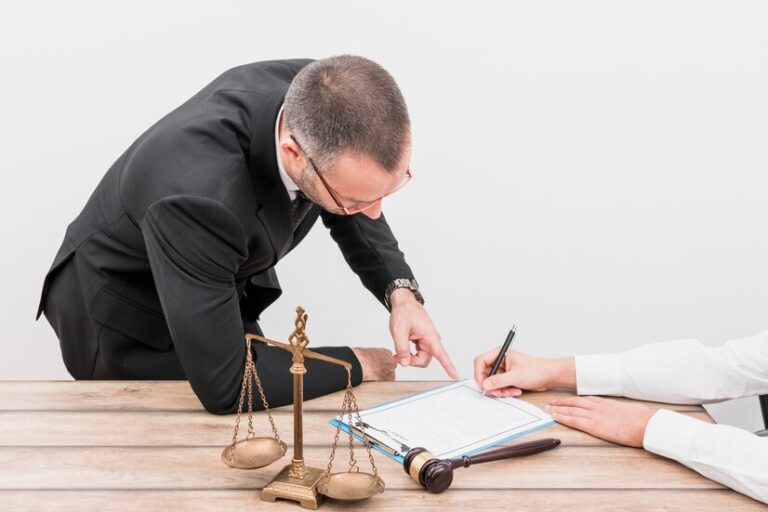Criminal Law Tips: Understanding Key Aspects in Canada
Ever wondered what steps to take if you find yourself in a tricky legal situation?
Knowing the basics of Canadian criminal law can make all the difference. Whether it’s understanding your rights when interacting with police, or knowing what happens after a charge, being informed is essential.
This guide covers the key aspects of criminal law in Canada, offering practical tips for handling common situations and making sure you’re well-prepared if you ever find yourself in a legal bind.
Key Aspects of Canadian Criminal Law
In Canada, criminal law is a set of rules that determine what behaviors are considered offenses against society. It’s governed by the Criminal Code of Canada, which defines crimes and lays out the penalties associated with them. Unlike civil law, which deals with disputes between individuals, criminal law addresses actions that can harm the public and the social order.
Understanding these aspects can help anyone feel more confident about their rights and responsibilities under Canadian law. If you find yourself in need of legal assistance, consulting a criminal lawyer can provide valuable guidance and support.
Common Types of Criminal Offenses
| Type of Offense | Examples |
| Property Crimes | Theft, fraud, vandalism |
| Violent Crimes | Assault, homicide, robbery |
| Drug-Related Offenses | Possession, trafficking, distribution |
| Public Order Offenses | Disorderly conduct, public intoxication |
| White-Collar Crimes | Fraud, identity theft, money laundering |
Each offense type comes with its own set of penalties, ranging from fines and probation to imprisonment. Understanding the nature of an offense is the first step in dealing with it effectively.
Key Rights Under Canadian Criminal Law
One of the most important things to know about criminal law in Canada is that everyone has certain rights protected under the Canadian Charter of Rights and Freedoms. These rights ensure that individuals are treated fairly, regardless of the situation.
Your Right to Remain Silent
If you’re approached or questioned by the police, you have the right to remain silent. You aren’t obligated to answer questions beyond providing basic identification. Exercising this right can be essential, especially if you’re unsure about the line of questioning or feel uncomfortable.
Right to Legal Representation
In Canada, you have the right to legal counsel if you’re detained or arrested. This means you can ask to speak to a lawyer before answering any further questions. A criminal defense lawyer can help you understand the charges against you and provide guidance on how to proceed.
Right to a Fair Trial
Everyone accused of a crime in Canada is presumed innocent until proven guilty. The right to a fair trial includes protections such as the right to know the charges against you, to be tried within a reasonable time, and to have a public trial by an impartial judge.
Protection Against Unreasonable Search and Seizure
Law enforcement must have reasonable grounds or a warrant to search your belongings or property. This protection means that police cannot search without a good reason, ensuring your privacy is respected under the law.
Practical Tips for Common Legal Situations
Now that you know some basics of criminal law and your rights, here are some practical tips for handling common legal situations in Canada.
1. If You’re Stopped by the Police
If the police stop you for questioning, remember to stay calm and respectful. Provide your name and basic identification, but know that you don’t have to answer additional questions. Politely tell the officer that you’d prefer to wait until you’ve spoken with a criminal defense lawyer before answering further questions. This right can protect you from making any statements that could later be used against you.
2. If You’re Detained or Arrested
Being detained or arrested can be overwhelming, but knowing your rights helps. When detained, you can ask if you’re free to leave. If not, you’re entitled to know the reason for your detention. Exercise your right to legal representation immediately and avoid answering questions until you’ve spoken with a lawyer.
3. If You’re Accused of a Crime
Facing an accusation of a crime is serious, whether it’s for a minor or major offense. Avoid the urge to explain or defend yourself on the spot. Politely state that you’ll wait to provide any statements until you have legal counsel.
A criminal defense lawyer can help you understand the charges, gather evidence, and build a defense. Common charges like theft, drug possession, or assault carry varying penalties, so getting legal guidance is critical.
4. If You Witness a Crime
As a witness to a crime, you may feel compelled to report what you’ve seen. If the police ask you for a statement, remember that you still have the right to consult a lawyer before providing details. This can help ensure that any information you provide is accurate and won’t inadvertently implicate you in the incident.
Understanding the Criminal Trial Process
If you’re charged with a crime in Canada, your case may go to trial. Understanding the criminal trial process can help you prepare and feel more in control.
Steps in the Criminal Trial Process
- Arraignment: This is the first appearance in court, where the charges are formally read, and you enter a plea (guilty or not guilty).
- Preliminary Hearing: For serious offenses, a preliminary hearing determines if there’s enough evidence for a trial.
- Trial: During the trial, both sides present evidence, call witnesses, and make arguments. You have the right to defend yourself, and your lawyer will work to challenge any evidence against you.
- Sentencing: If found guilty, sentencing determines the punishment, which could range from community service to imprisonment.
When to Consult a Criminal Defense Lawyer
A criminal defense lawyer is an invaluable resource if you’re facing charges. They can assess the evidence, advise on defense strategies, and advocate on your behalf throughout the trial. Even if you’re unsure about the seriousness of the charges, consulting a lawyer ensures that your rights are protected and that you’re fully informed about your options.
Tips for Protecting Your Rights
Navigating Canadian criminal law can be challenging, but here are some key tips to help protect your rights:
- Stay Informed of Your Rights: Knowing your rights empowers you to make informed decisions during legal interactions.
- Avoid Self-Incrimination: If questioned by police, exercise your right to remain silent and consult a lawyer before making any statements.
- Document the Incident: If you’re involved in a legal situation, take notes on what happened and keep any relevant documents.
- Consult Legal Professionals: Don’t try to handle serious charges alone. A lawyer can provide expertise and support that’s essential for a fair outcome.
Final Thoughts
Understanding criminal law in Canada is about more than knowing the rules; it’s about protecting your rights and being prepared for any situation. From knowing when to exercise your right to remain silent to understanding the criminal trial process, staying informed is crucial. If you ever find yourself dealing with criminal charges, don’t hesitate to seek advice from a criminal defense lawyer who can guide you through the process and ensure the best possible outcome. Knowing your rights, consulting professionals, and staying calm can make all the difference in navigating the complexities of Canadian criminal law.







